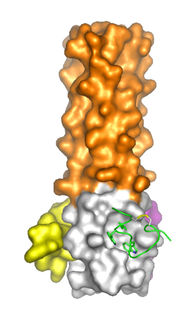TopoTarget and CuraGen Initiate NCI-Sponsored Phase II Trial of PXD101 for Ovarian Cancer
Advertisement
TopoTarget A/S and CuraGen Corporation announced the initiation of patient dosing in a Phase II clinical trial evaluating the antitumor activity of intravenous PXD101, a small molecule histone deacetylase (HDAC) inhibitor, for the treatment of ovarian cancer. This trial is being sponsored by the National Cancer Institute (NCI) under a clinical trials Agreement with CuraGen for PXD101.
The Phase II trial is an open-label study being led by Dr. Amit Oza at Princess Margaret Hospital in Toronto, Canada. Patients with either advanced platinum resistant ovarian tumors or micropapillary/borderline low malignant potential (LMP) ovarian carcinoma may be enrolled for treatment with PXD101. Patients may have received no more than three prior lines of therapy. Upon enrollment, patients will receive intravenous PXD101 daily for five days in three week cycles until disease progression. The primary endpoint for the study is determination of objective disease response, as evaluated by the RECIST criteria. Secondary endpoints include evaluation of safety and tolerability of PXD101, stable disease rates, duration of response, progression-free survival, as well as median and overall survival. Up to 62 patients at sites across Canada and the United States will be enrolled into the study.
PXD101 is a small molecule HDAC inhibitor being investigated for its role in the treatment of a wide range of solid and hematologic malignancies either as a single-agent, or in combination with other active anti-cancer agents, including 5-fluorouracil (5-FU), carboplatin, paclitaxel, cis-retinoic acid, azacitidine and Velcade® (bortezomib) for Injection. HDAC inhibitors represent a new mechanistic class of anti-cancer therapeutics that target HDAC enzymes and have been shown to: arrest growth of cancer cells (including drug resistant subtypes); induce apoptosis, or programmed cell death; promote differentiation; inhibit angiogenesis; and sensitize cancer cells to overcome drug resistance when used in combination with other anti-cancer agents.
Most read news
Topics
Organizations
Other news from the department research and development

Get the life science industry in your inbox
By submitting this form you agree that LUMITOS AG will send you the newsletter(s) selected above by email. Your data will not be passed on to third parties. Your data will be stored and processed in accordance with our data protection regulations. LUMITOS may contact you by email for the purpose of advertising or market and opinion surveys. You can revoke your consent at any time without giving reasons to LUMITOS AG, Ernst-Augustin-Str. 2, 12489 Berlin, Germany or by e-mail at revoke@lumitos.com with effect for the future. In addition, each email contains a link to unsubscribe from the corresponding newsletter.























































